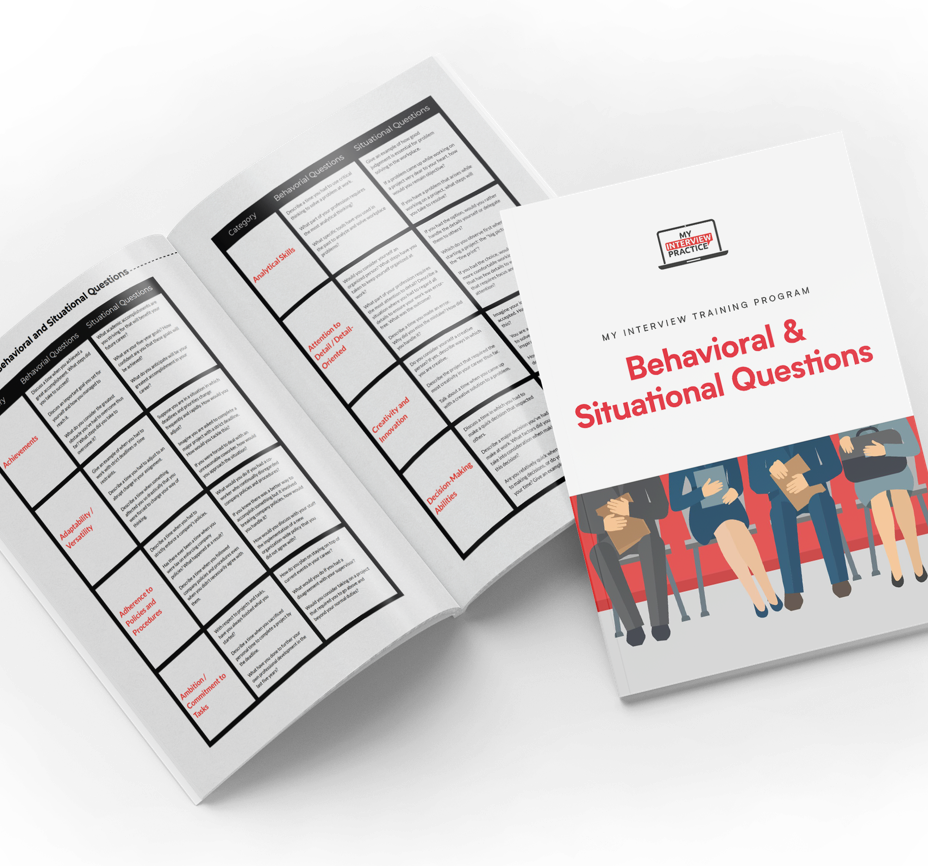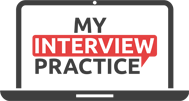How to Research a Company for an Interview: 2025 Guide

Researching a company before an interview can make you stand out as a passionate, prepared candidate. It’s not just about knowing facts; it’s about showing you care about the role and the organization’s goals. This guide provides clear, practical steps to help you dig deep, align your answers, and walk into the interview confident.
From exploring the website to connecting with employees, here’s how to research a company for an interview.
Visit the Company Website
The company website is your first stop for company research. The “About Us” page often spells out the company’s mission statement and values, giving you a clear idea of its culture. Are they ethical? Focused on clients? How do they treat customers?
The “Careers” page lists job openings and traits they want in candidates, like teamwork. Large companies share benefits and work vibes here. Visit these sections to prepare, tailoring your interview responses to their mission and showing genuine interest.
Other sections, such as services pages, provide a great opportunity to understand the business and client base.
Analyze the Job Description When Preparing for an Interview
A job posting provides a general knowledge of the role, key responsibilities, required skills, and qualifications you need when preparing for an interview. Analyzing these aspects allows you to tailor your responses to meet the company’s needs.
Focus on the general description, which includes specific duties, experience requirements, and the starting salary range. You can use examples from your previous experiences to illustrate your skills and showcase your suitability for the role. If project management skills are emphasized, your answer should include a successful project in detail.
When you are aware of the gaps in your qualifications, you can prepare for related interview questions and discuss improvement plans, demonstrating your better understanding of your willingness to grow within the company.
Crafting insightful questions about the job description showcases your interest in the role and reflects proactive writing research.
Investigate Company Culture and Values
Company values form the cornerstone of organizational culture and are often prominently displayed on the company’s website. Understanding and aligning with these company’s values can demonstrate that you are a good cultural fit during the interview, reflecting the company’s culture.
If there isn’t a specific section for values, look for recurring themes across the website. Companies frequently use social media to reinforce their core values, fostering alignment among employees.
Alignment between a company’s stated values and actions is crucial for building organizational trust. Research their core mission to ensure their goals resonate with your interests. If innovation is a core value, highlight your experience with creative problem-solving and enthusiasm for continuous learning.
Research Company Leaders
Familiarize yourself with the backgrounds and leadership styles of company leaders. This understanding can help tailor your approach. Information about company leadership is often available on the ‘About Us’ page, in employee biographies, and on social media profiles.
LinkedIn profiles offer detailed insights like employee count, office locations, and leader profiles. Researching leaders’ backgrounds and styles helps you understand their impact on the company and prepare relevant interview questions.
Check Financial Health
Assessing the company’s financial information health is crucial. Understanding its financial profile offers insights into stability and growth potential. The business’s annual report, earnings statements, and financial news are valuable resources.
The bottom line profit margin is a key indicator of financial health. For example, if you are interviewing with a startup, research on Crunchbase for useful financial information. If you identify any financial red flags, analyze them to decide if the company is a good fit.
Utilize Social Media
Social media platforms like LinkedIn and Instagram provide valuable knowledge insights into a company’s culture and recent developments. You can follow the company on these platforms to stay updated on their latest projects and initiatives, aiding in tailoring your interview responses.
Companies frequently share unique details about their culture and achievements on social media. Observing these posts enhances your understanding and interview preparation. For example, if a company often posts about team-building activities, you can mention your appreciation for a collaborative work environment during the interview.
Read Recent News Articles
Keeping up with recent news about the company is vital. Note that you can search the company’s name on Google and check the News tab for recent articles. Researching a company can help you find relevant information from national and local news, trade publications, and business journals.
Recent articles can reveal company achievements, business challenges, and future plans. Monitor major changes like layoffs, mergers, or new CEOs to stay informed about the company’s history. This information prepares you for the interview and helps gauge the company’s industry position.
Explore Employee Reviews
Employee reviews tell you what it’s like to work there. Look on Glassdoor and other review sites for comments from people who’ve been on the job, previous candidates, and the customer base. Some might complain about career growth, so weigh that against the positive notes.
Both current and past workers give you a fuller picture of the place. Bring up something you learn in the interview to show you’ve looked into it.
Network with Current or Past Employees
Connecting with current or past employees helps you gain insider perspectives on company culture and work environment. Find someone who works there for details, or check with friends for contacts. Informational interviews can be particularly useful for gathering firsthand information.
Use LinkedIn to view their profiles and connect for tips and insights about the company and industry. Current connections can provide valuable advice to help you prepare for your interview.
Understand the Industry
Understanding industry trends, competitors, and key business terms is crucial for grasping the market landscape and preparing for informed interview discussions in a general sense. Federal agency data can provide essential statistics on demographics, business conditions, and employment trends.
Competitor research reveals more about market share, strengths, weaknesses, and opportunities within the industry. Identifying indirect competitors is important as they may influence your potential success. Highlighting this knowledge during interviews can be valuable.
Learn About the Hiring Manager
Investigating the hiring manager before the interview offers valuable information about their background and management style. LinkedIn is an excellent tool for identifying employee and manager profiles, helping you understand the organizational structure. Exploring the interviewer’s LinkedIn profile can reveal their career trajectory, technical roles, and professional affiliations.
Identifying mutual connections on LinkedIn can provide valuable insights into the hiring manager’s management style and technical approach. Searching for the hiring manager online may uncover articles they authored or were quoted in, offering valuable information about their expertise and viewpoints.
Prepare Questions for the Interview
Prepare insightful questions to ask during the interview process. This shows you have a genuine interest in the role and the company. Inquiring about the company’s approach to diversity and inclusion shows alignment with personal values on workplace equity. Asking about the onboarding process helps gauge how well new employees are integrated.
Research how the company recognizes staff successes. This is an indicator of the overall culture and appreciation for contributions. Discussing the hiring manager’s team management style can help determine if your work preferences align.
Such questions reflect thorough research properly and can leave a positive impression on your potential employers, providing an answer to their expectations.
An interview starts before you even walk in the door!
Remember that old adage, “Dress for the job you want”? The same concept applies here. If you want the job, know what an employee would know.
Show your passion for the work and the company by doing your research. This is the single greatest factor that will separate you from a sea of similarly qualified candidates. Not sure where to start? Check out our Company Research training guide for tips.
Frequently Asked Questions
Why is it important to research a company before an interview?
Researching a company before an interview is crucial, as it shows that you have a genuine interest in the role and enables you to tailor your responses effectively. Being ready to discuss the company’s mission, values, and culture enhances your chances of making a positive impression.
What key sections should I review on the company’s website?
It is crucial to review the ‘About Us’ and ‘Careers’ sections of the company’s website to gain information on the company’s mission, values, and culture. These pages provide a foundational understanding of the organization.
How can I use social media to research a company?
To effectively research a company on social media, follow them on platforms such as LinkedIn and Instagram. These platforms provide a comprehensive understanding of the company’s values and operations.
Why should I read employee reviews before an interview?
Always read reviews before the interview as they offer valuable insights into the company’s work environment, job satisfaction, and potential challenges you may encounter. This information can help you make an informed decision about the job and prepare thoughtful questions for your interview.
What type of questions should I prepare for the interview?
You should prepare questions that demonstrate your research. These questions should focus on the company’s diversity initiatives, onboarding process, and professional development opportunities. This not only shows your interest but also your alignment with the organization’s values.
The key to nailing your interview – practice, practice, practice.
As with anything, practice makes perfect. The most common ways to practice are with in-person mock interviews or a list of questions. While these options are a great place to start, they can leave a lot to be desired.
Practicing with In-Person Mock Interviews and Question Lists
One way to get valuable interview practice is to set up in-person mock interviews. Unfortunately, they can be somewhat inconvenient. You have to find someone to conduct the mock interview, and schedule a meeting every time you want to practice.
Question lists offer a much more convenient way to practice interviewing. Unfortunately, they do little to recreate actual interview pressure. In a real interview you’ll never know what’s going to be asked and this is exactly what can make interviews so stressful.
Interview Simulators – The best of both worlds.
With interview simulators, you can take realistic mock interviews on your own, from anywhere.
My Interview Practice offers a dynamic simulator that generates unique questions every time you practice, ensuring you're always prepared for the unexpected. Our AI-powered system can create tailored interviews for any job title or position. Simply upload your resume and a job description, and you'll receive custom-curated questions relevant to your specific role and industry. Each question is crafted based on real-world professional insights, providing an authentic interview experience. Practice as many times as you need to build your confidence and ace your next interview.
| List of Questions |
In-Person Mock Interview |
My Interview Practice Simulator |
|
|---|---|---|---|
| Questions Unknown Like Real Interviews | |||
| Curated Questions Chosen Just for You | |||
| No Research Required | |||
| Share Your Practice Interview | |||
| Do It Yourself | |||
| Go At Your Own Pace | |||
| Approachable |
Our interview simulator uses video to record your responses, and recreates the pressure you would feel in a real interview. This also allows your to see how you perform and perfect your responses. You can then share your responses with colleagues and mentors so that you can get valuable feedback.
Get the free training guide.
See the most common questions in every category assessed by employers and be ready for anything.
Get the Guide











